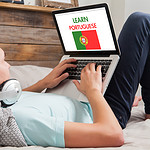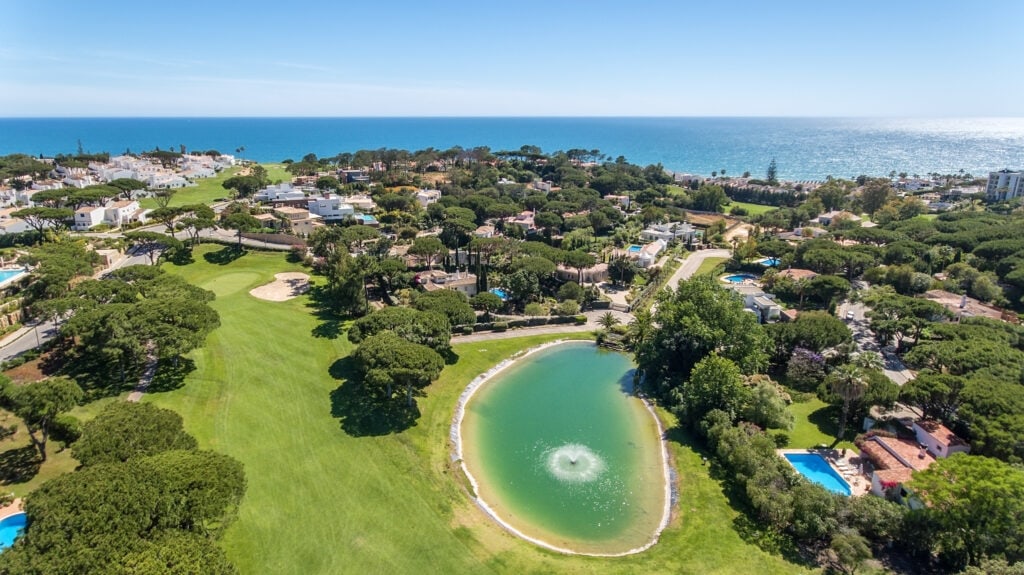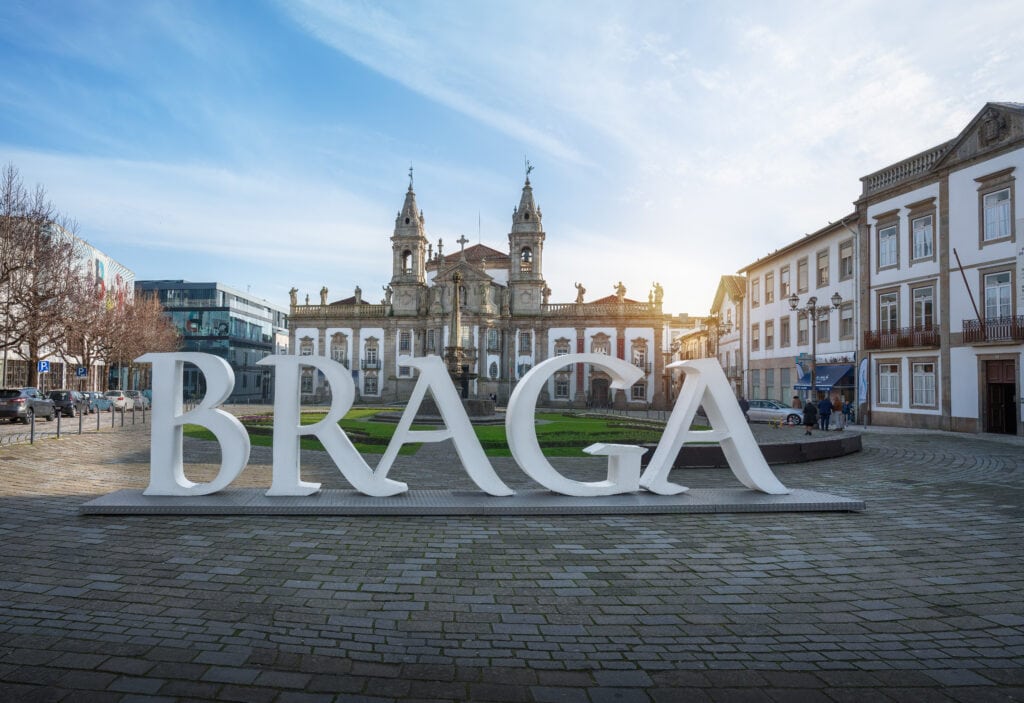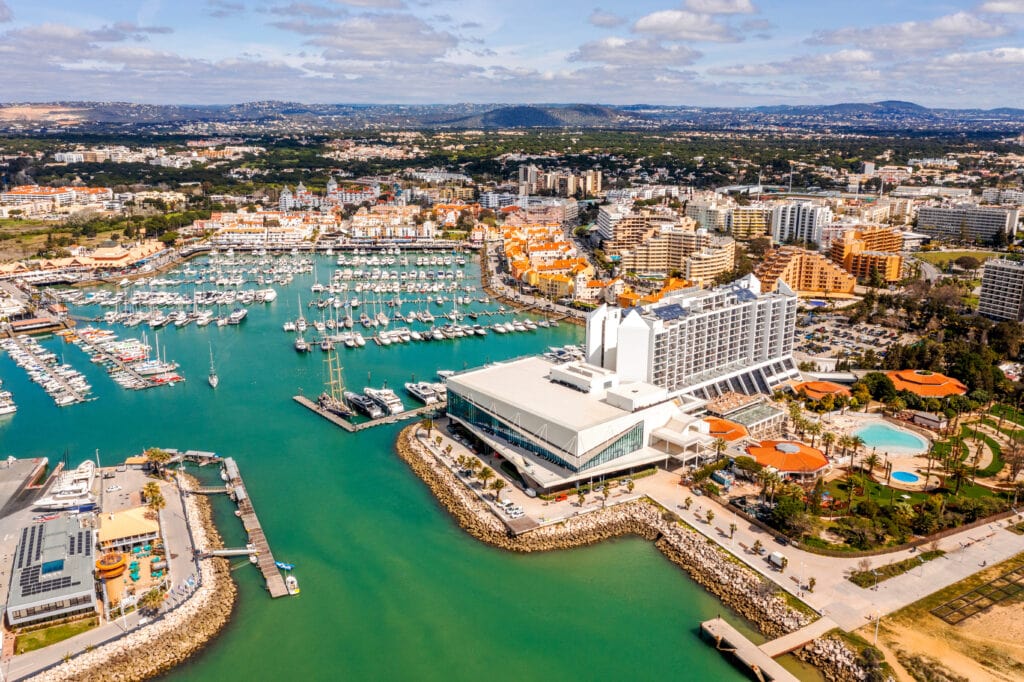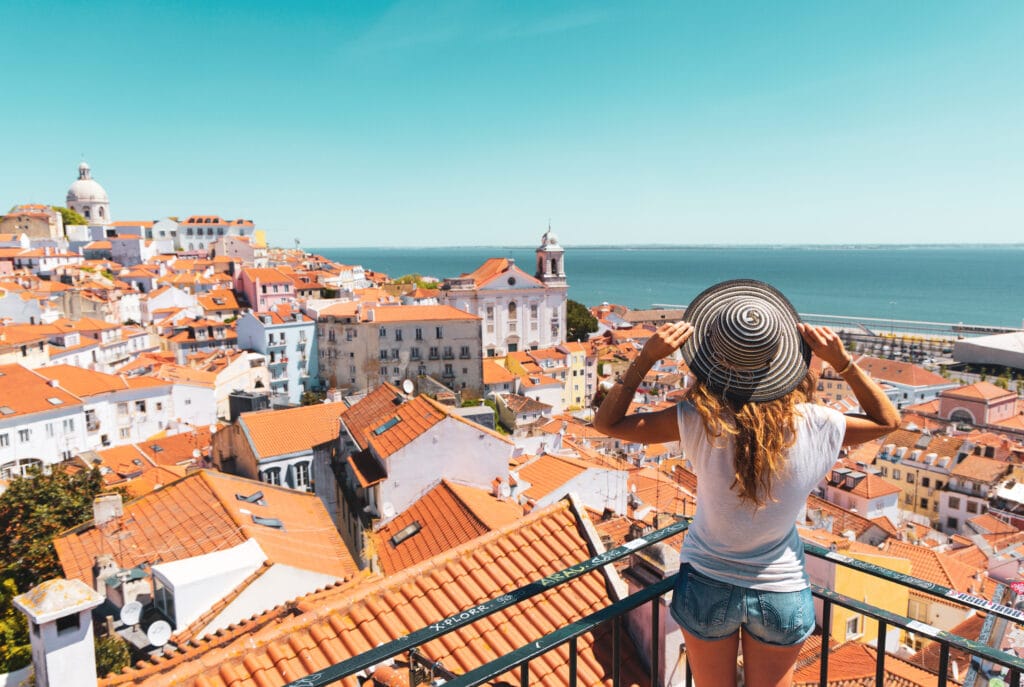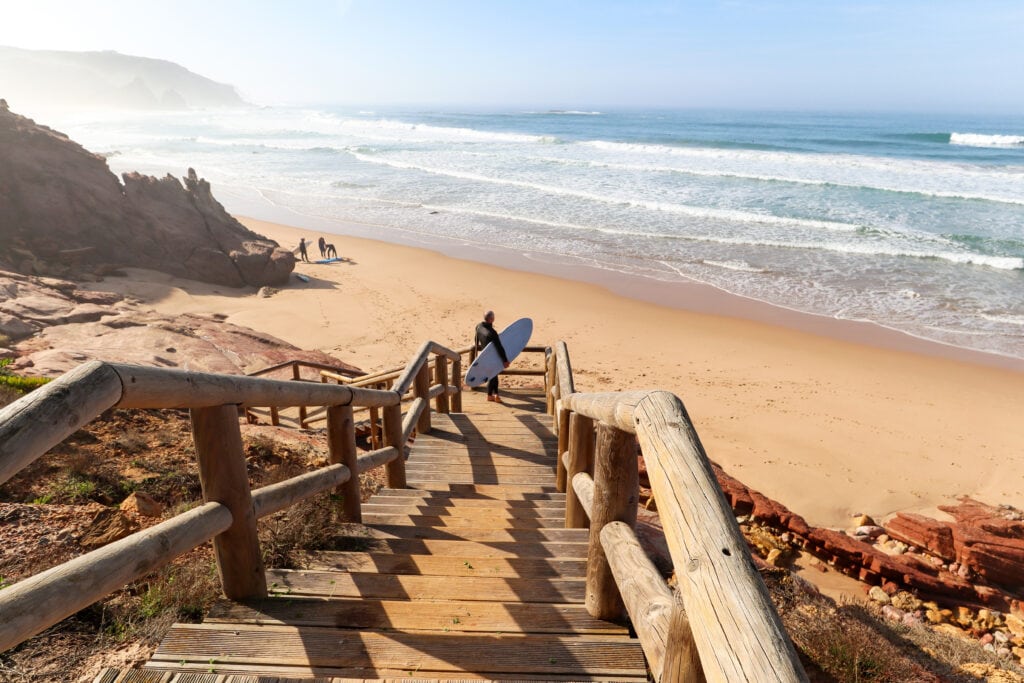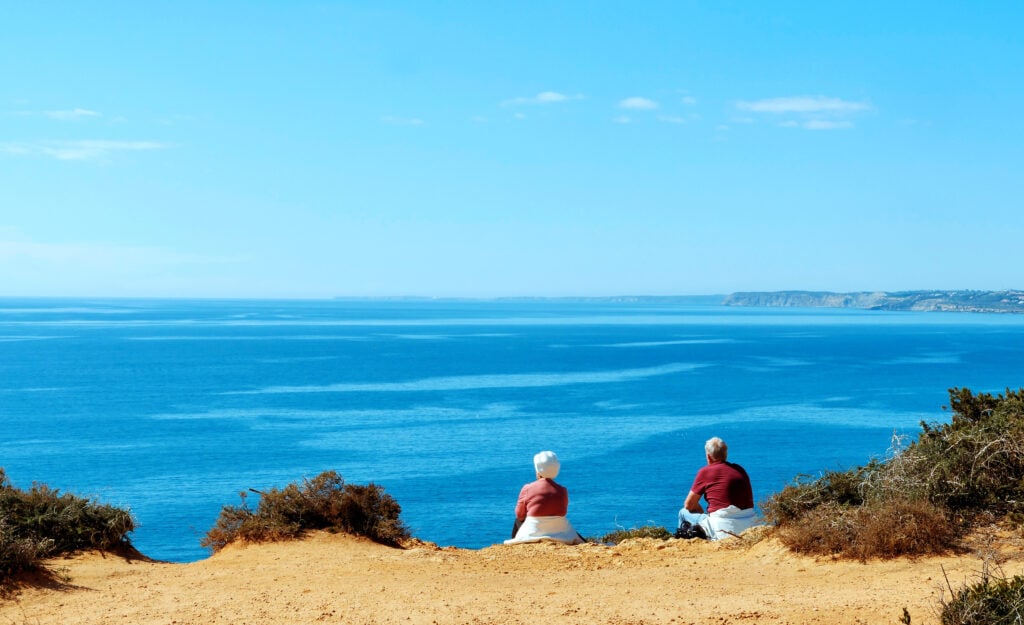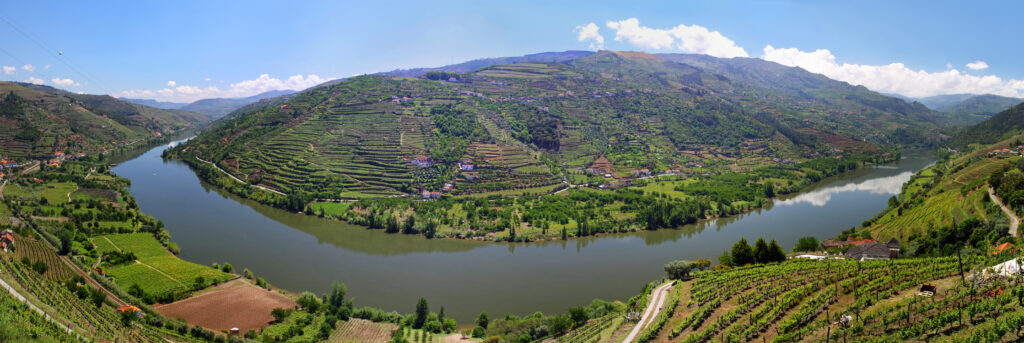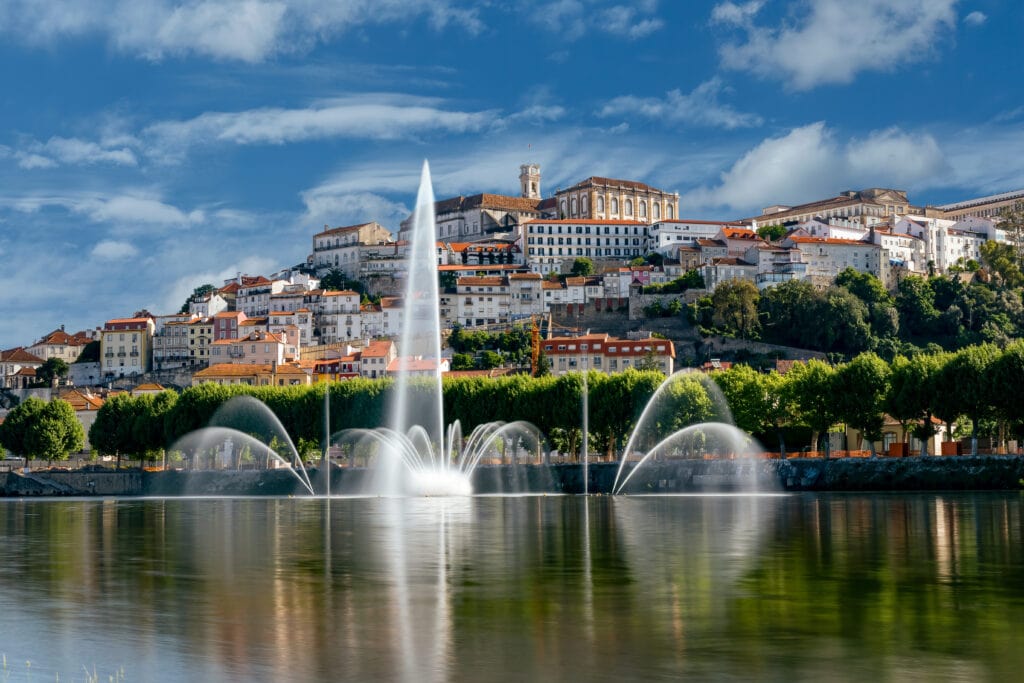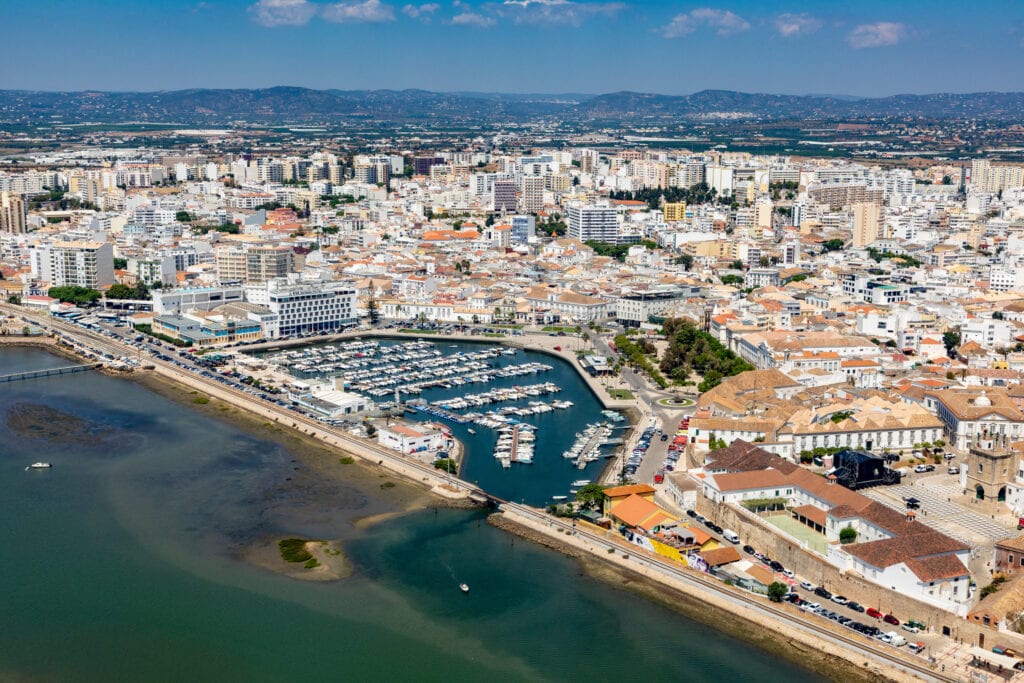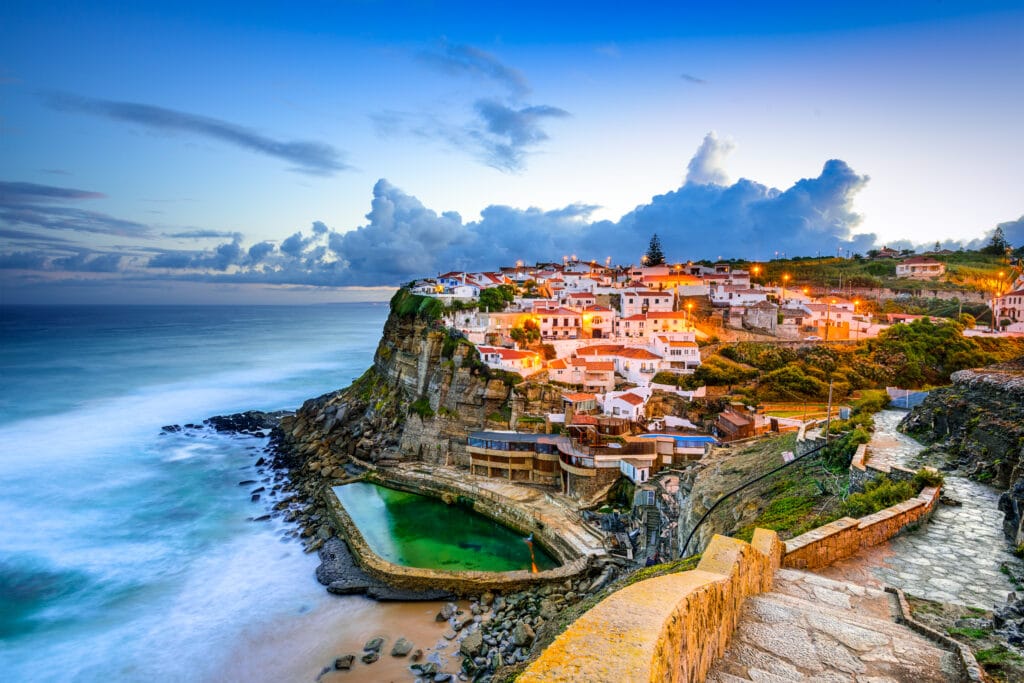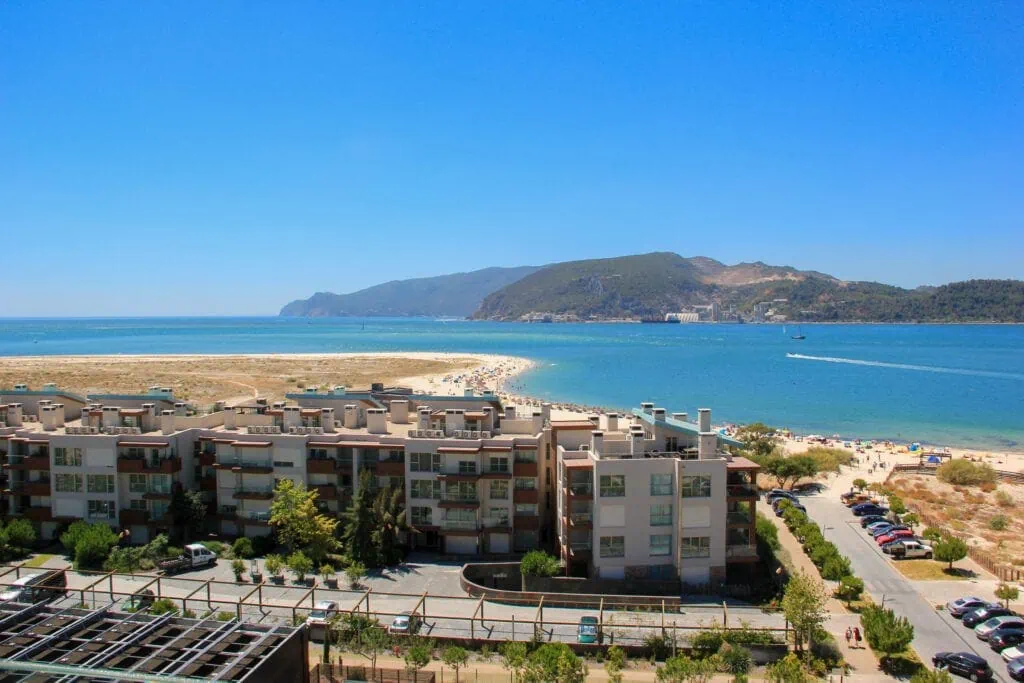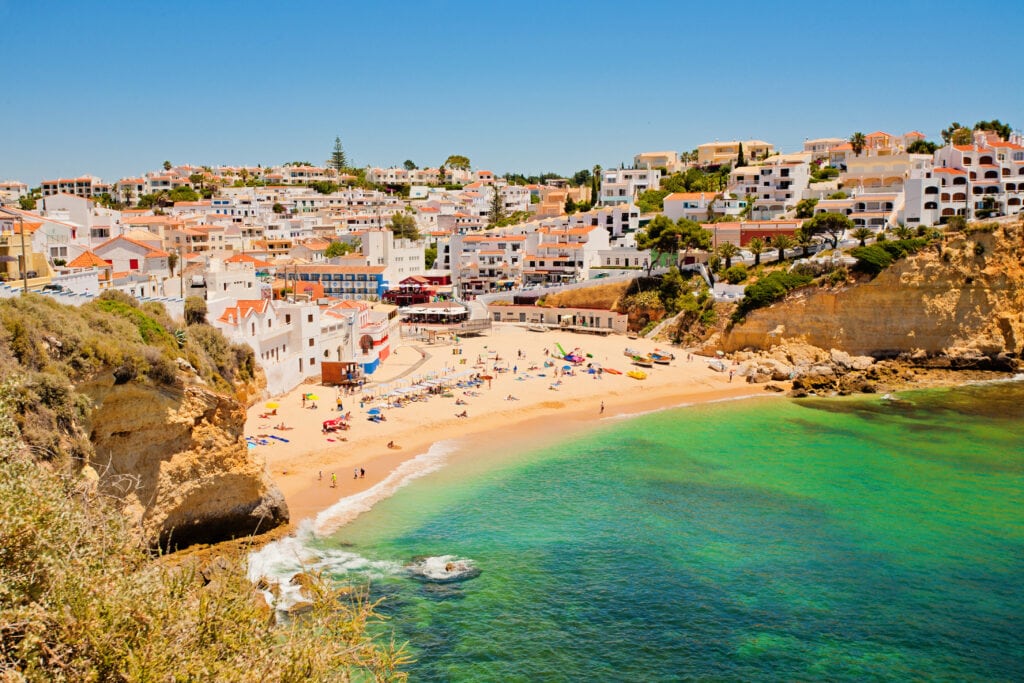Portuguese Language Tips: Communicating on Your Trip

Learning the basics of the Portuguese language can greatly enhance your travel experience. Whether you’re traveling to Portugal or Brazil, having a grasp of essential Portuguese phrases and words will make communication easier. In this article, we will provide you with key greetings, basic phrases, essential questions, and travel phrases in Portuguese. We’ll also share some quick tips to make learning basic Portuguese a breeze.
Key Takeaways:
- Learning Portuguese is beneficial for anyone traveling to a Portuguese-speaking country.
- Knowing key greetings, basic phrases, and travel phrases will enhance communication and cultural experiences.
- Practice speaking Portuguese in context and leverage technology to facilitate your learning journey.
- Consider immersion programs or language exchanges to accelerate your language learning.
- Understand the differences between European Portuguese and Brazilian Portuguese to navigate specific dialects.
Basic Greetings in Portuguese
Greetings are essential when learning any language, and the same goes for Portuguese. Knowing how to say hello and goodbye can go a long way in everyday interactions. In Portuguese, you can use “Olá” for hello and “Tchau” for goodbye. Additionally, you can use “Bom dia” for good morning and “Boa tarde” for good afternoon or evening.
Example Phrase
Apart from hello and goodbye, here’s a basic greeting phrase in Portuguese:
- “Como vai?” – How are you?
| Greeting | Translation |
|---|---|
| Olá | Hello |
| Tchau | Goodbye |
| Bom dia | Good morning |
| Boa tarde | Good afternoon/evening |
Basic Words and Phrases in Portuguese
When travelling to Portuguese-speaking countries like Portugal or Brazil, it is crucial to have a grasp of basic words and phrases in order to navigate social situations and show respect to the locals. By using these phrases, you can prevent cultural misunderstandings and enhance your overall travel experience. Here are some essential Portuguese words and phrases:
Basic Words
| Phrase | Translation |
|---|---|
| Por favor | Please |
| Obrigado (for males) / Obrigada (for females) | Thank you |
| Desculpe | Sorry |
Essential Phrases
- Por favor – Please
- Obrigado (for males) / Obrigada (for females) – Thank you
- Desculpe – Sorry
Portuguese Etiquette
Understanding and respecting Portuguese etiquette is important for a smooth and pleasant experience. Here are a few etiquette tips to keep in mind:
- Always greet people with a handshake or a kiss on both cheeks, depending on the region.
- Address people formally using “Sr.” (pronounced “senhor”) for males and “Sra.” (pronounced “senhora”) for females.
- Avoid being too direct or confrontational in conversations and maintain a polite and respectful tone.
- Do not start eating until the host says “bom apetite” (enjoy your meal) and do not leave the table until the host has finished eating.
- Try to learn a few words in Portuguese and use them while interacting with locals. They will appreciate the effort.
Essential Questions and Phrases in Portuguese
When learning a new language, asking for help is an essential part of the process. Having a few key phrases in your repertoire can make all the difference when interacting with native Portuguese speakers. Here are some common questions and phrases that will assist you in everyday conversations and interactions:
1. “Como está?” – How are you?
Use this question to greet someone and ask them how they are doing. It’s a polite way to initiate a conversation and show interest in the other person’s well-being.
2. “Me ajude” – Help me
If you find yourself in need of assistance, this phrase will come in handy. Whether you’re lost, struggling with a task, or simply need guidance, using this polite request can help you get the help you need.
3. “Onde fica…” – Where is…
When you’re looking for a specific location or landmark, use this phrase to ask for directions. Whether you’re trying to find a restaurant, a museum, or a train station, asking “onde fica” followed by the name of the place will help you navigate your surroundings.
By incorporating these essential questions and phrases into your conversations, you’ll be able to communicate more effectively and make the most of your experiences in Portuguese-speaking countries.
Essential Portuguese Travel Phrases
When travelling to Portugal or Brazil, it’s helpful to know specific travel phrases that can assist you along the way. While not an exhaustive list, these phrases will give you a good starting point. Embrace the local culture and enhance your travel experiences by communicating in Portuguese. Below are some useful Portuguese travel phrases:
Greetings and Basic Phrases
- “Olá” – Hello
- “Tchau” – Goodbye
- “Bom dia” – Good morning
- “Boa tarde” – Good afternoon/evening
Inquire and Communicate
- “Onde fica…” – Where is…
- “Quanto custa…” – How much is…
- “A conta, por favor” – The bill, please
- “Fala inglês?” – Do you speak English?
Transportation
- “Onde está a estação de trem?” – Where is the train station?
- “Quanto custa um bilhete?” – How much is a ticket?
- “Por favor, pare aqui” – Please stop here
- “Apanhar um táxi” – Take a taxi
These essential Portuguese travel phrases will aid you in navigating public transportation, shopping, dining experiences, and more. Immerse yourself in the local culture by using these phrases and embracing the language. Being able to communicate in Portuguese will make your trip more enjoyable and rewarding.
Asking for Directions in Portuguese
In order to reach your destination, it’s important to know how to ask for directions in Portuguese. Whether you’re exploring the streets of Lisbon or the beaches of Rio de Janeiro, having a few key phrases in your language arsenal can make navigating unfamiliar locations much easier.
Here are some useful phrases to help you ask for directions in Portuguese:
- Onde fica… – Where is…
- Como chego… – How do I get to…
- Pode me ajudar? – Can you help me?
- Estou perdido(a). – I am lost.
By using these simple phrases, you can communicate your need for directions and get the help you need. Locals will appreciate your efforts to speak their language, and they will be more than happy to assist you in finding your way.
Remember to always approach locals politely, with a friendly demeanor, and be ready to offer a “thank you” (obrigado for male speakers, obrigada for female speakers) after receiving directions.
If you prefer visual aids, here’s a table with some common vocabulary related to giving and receiving directions:
| English | Portuguese |
|---|---|
| Street | Rua |
| Avenue | Avenida |
| Turn | Vire |
| Left | Esquerda |
| Right | Direita |
| Straight | Em frente |
| Intersection | Interseção |
Having a basic understanding of these words will allow you to follow directions more easily and navigate your way around the city.
So, next time you find yourself in need of directions in a Portuguese-speaking country, don’t hesitate to use these phrases. Asking for directions in Portuguese will not only help you reach your destination but can also lead to meaningful interactions with locals and a deeper immersion into the local culture.
Shopping in Portuguese
If you’re interested in shopping during your trip, it’s essential to know some phrases for shopping in Portuguese. Whether you’re looking for souvenirs, clothing, or local products, being able to communicate with shopkeepers will make your shopping experience much smoother.
Phrases for Shopping
Here are some useful phrases to help you navigate through your shopping adventure:
- Quanto custa… – How much is…?
- Você tem esse em outra cor/tamanho? – Do you have this in another color/size?
- Posso experimentar? – Can I try it on?
- Você aceita cartão de crédito/débito? – Do you accept credit/debit card?
- Você pode fazer um desconto? – Can you give me a discount?
- Este é o meu orçamento – This is my budget.
- Eu vou levar isso – I’ll take this.
Remember to be polite and respectful when haggling in Portuguese. Bargaining may be common in some countries, but it’s important to approach it with kindness and understanding. Use phrases like “Quanto custa…” to inquire about the price and “Este é o meu orçamento” to express your budget limits. Enjoy shopping and finding the perfect souvenirs to take home!
| English | Portuguese |
|---|---|
| How much is…? | Quanto custa…? |
| Do you have this in another color/size? | Você tem esse em outra cor/tamanho? |
| Can I try it on? | Posso experimentar? |
| Do you accept credit/debit card? | Você aceita cartão de crédito/débito? |
| Can you give me a discount? | Você pode fazer um desconto? |
| This is my budget. | Este é o meu orçamento. |
| I’ll take this. | Eu vou levar isso. |
Words and Phrases for Food in Portuguese
Exploring the local cuisine is an integral part of any travel experience, and knowing food-related phrases can enhance your dining experiences. To express your preferences or make specific requests, you can use phrases like “Eu sou vegetariano(a)” for I am vegetarian or “Eu tenho alergia a…” for I am allergic to. Additionally, knowing how to say common food items and beverages will make ordering easier.
Common Food Phrases
When dining in Portuguese-speaking countries, it’s helpful to be familiar with common food phrases. Here are some useful phrases for ordering food:
- “Uma mesa para dois, por favor” – A table for two, please
- “Podemos ver o cardápio?” – Can we see the menu?
- “Qual é a especialidade da casa?” – What is the house specialty?
- “Eu gostaria de pedir…” – I would like to order…
- “Que tipo de carne é esta?” – What type of meat is this?
- “Vocês têm opções vegetarianas?” – Do you have vegetarian options?
- “Eu gostaria de uma sobremesa” – I would like a dessert
- “Poderia me trazer a conta?” – Could you bring me the bill?
Common Food and Beverage Vocabulary
In addition to ordering phrases, knowing how to say common food items and beverages will also be helpful. Here is a list of some common food and drink vocabulary in Portuguese:
| English | Portuguese |
|---|---|
| Water | Água |
| Bread | Pão |
| Rice | Arroz |
| Chicken | Frango |
| Beef | Carne de vaca |
| Fish | Peixe |
| Pork | Porco |
| Vegetables | Legumes |
| Fruit | Fruta |
| Dessert | Sobremesa |
Quick Tips to Make Learning Basic Portuguese a Breeze
Learning a language takes time and effort, but it doesn’t have to be stressful. Here are some quick tips to make learning basic Portuguese easier:
- Learn in context: Use resources such as authentic videos, short stories, and movies to immerse yourself in the Portuguese language. This will help you understand the language in real-life situations and improve your overall comprehension.
- Practice speaking out loud: Improving your pronunciation is crucial when learning a new language. Watch online video lessons and repeat words and phrases out loud to strengthen your speaking skills.
By following these tips, you’ll make progress in your language learning journey and find that learning basic Portuguese can be an enjoyable and rewarding experience.
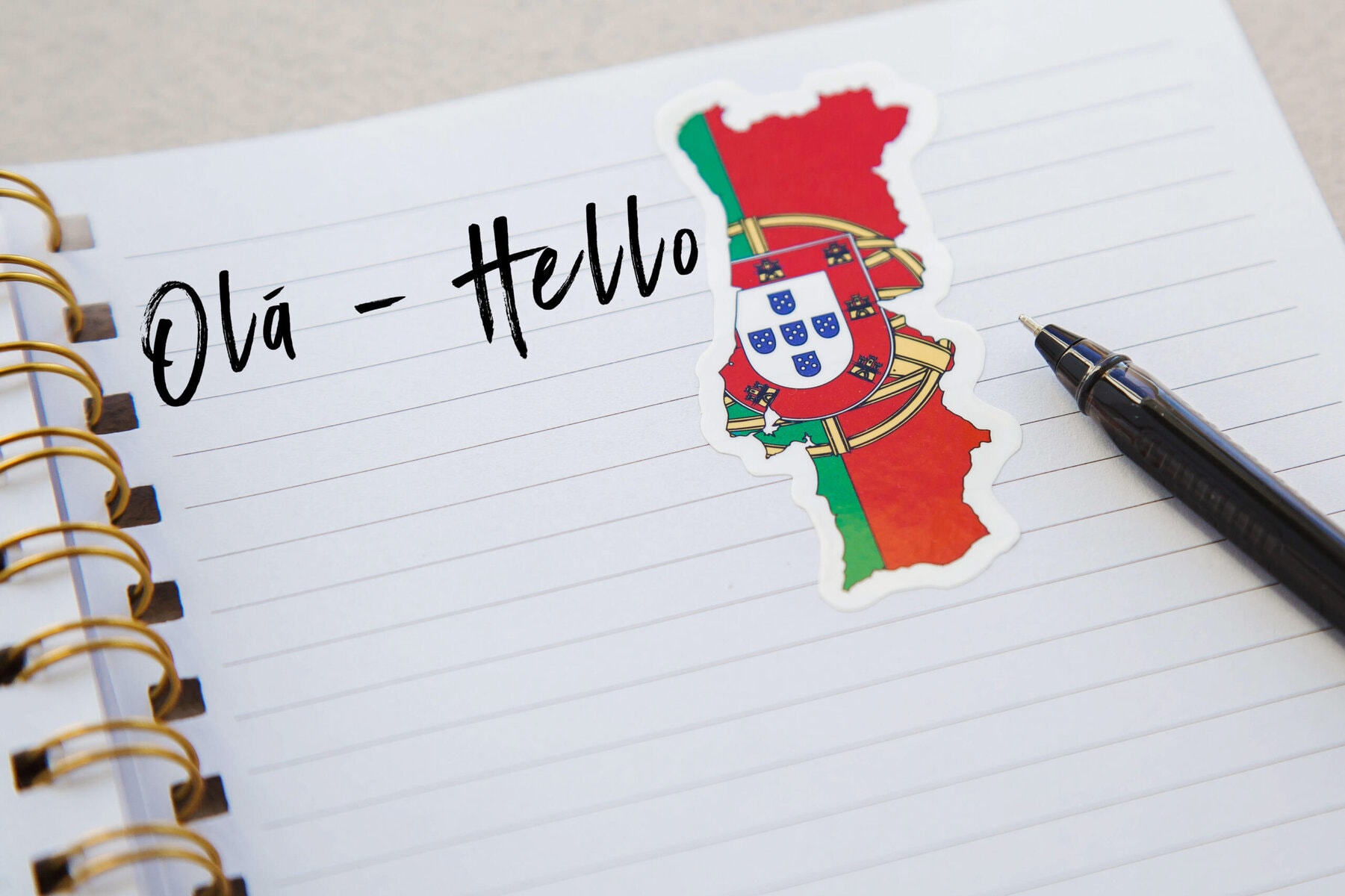
Technology’s Role in Learning Portuguese
In today’s digital age, technology has revolutionized the way we learn languages, including Portuguese. With the help of technology, learning Portuguese has become more accessible, convenient, and engaging than ever before. There is a plethora of language learning apps, online resources, and platforms dedicated to teaching Portuguese to learners of all levels.
One example of a popular language learning app is FluentU. FluentU offers a comprehensive learning experience by providing authentic videos and personalized lessons that immerse learners in the Portuguese language and culture. By watching videos with real-life content and engaging in interactive exercises, learners can develop their listening, speaking, and comprehension skills in a fun and interactive manner.
Online dictionaries and translator apps also play a crucial role in learning Portuguese. These tools provide quick and accurate translations of words and phrases, helping learners to improve their vocabulary and grasp the meaning of unfamiliar terms. Additionally, they offer pronunciation guides to ensure learners can speak Portuguese with confidence and accuracy.
Furthermore, online resources such as podcasts, language exchange platforms, and language learning websites offer a wealth of materials to supplement formal Portuguese lessons. These resources enable learners to practice their listening and speaking skills, connect with native speakers, and access additional learning materials such as grammar explanations, exercises, and cultural insights.
Benefits of Technology for Learning Portuguese
- Convenience: Technology allows learners to access language learning materials anytime, anywhere, making it possible to study Portuguese at their own pace and according to their schedule.
- Interactive Learning: Language learning apps and online resources provide interactive exercises, quizzes, and games that engage learners and make the learning process more enjoyable.
- Authentic Content: With technology, learners can access authentic Portuguese content such as videos, articles, and podcasts, exposing them to real-life language usage and cultural nuances.
- Personalized Learning: Many language learning apps and online platforms offer personalized learning plans and progress tracking, tailoring the learning experience to individual needs and goals.
- Self-paced Learning: Technology allows learners to learn at their own pace, giving them the flexibility to review and revisit materials as needed.
Overall, technology has undoubtedly transformed the landscape of language learning, including the acquisition of Portuguese. By leveraging technology, learners can immerse themselves in the Portuguese language, access a diverse range of resources, and tailor their learning experience to meet their individual needs. With dedication and consistent effort, anyone can harness the power of technology to learn Portuguese effectively and confidently.

The Importance of Immersion in Learning Portuguese
Immersion is often considered one of the best ways to learn a language. By immersing yourself in the Portuguese language and culture, you’ll have more opportunities to practice and apply what you’ve learned. Language immersion programs, language exchanges, and staying with a host family in a Portuguese-speaking country are all great ways to immerse yourself and accelerate your language learning journey.
Language Immersion Programs
Language immersion programs are immersive learning experiences that provide you with the opportunity to fully immerse yourself in the Portuguese language. These programs often take place in a Portuguese-speaking country and involve intensive language classes, cultural activities, and interactions with native speakers. By surrounding yourself with the language on a daily basis, you’ll develop your listening, speaking, reading, and writing skills more rapidly.
Language Exchanges
Language exchanges offer a unique opportunity to practice your Portuguese skills while helping others learn your native language. Through language exchanges, you can connect with Portuguese speakers who are learning your language, and you can practice conversational Portuguese with them in return. This exchange of language and culture fosters mutual learning and creates a supportive environment for language acquisition.
Staying with a Host Family
Staying with a host family in a Portuguese-speaking country provides an immersive cultural experience that allows you to practice your language skills in everyday situations. Living with a local family offers authentic insights into the local culture, customs, and traditions, providing you with a deeper understanding of the language and its usage. Interacting with your host family and engaging in daily conversations will help improve your fluency and boost your confidence in speaking Portuguese.
| Benefits of Immersion in Learning Portuguese |
|---|
| Opportunities to practice and apply language skills |
| Rapid development of listening, speaking, reading, and writing skills |
| Expanding cultural understanding and appreciation |
| Building confidence in using the language |
| Enhanced fluency and pronunciation |
Key Differences in Portuguese Across Countries
When it comes to the Portuguese language, it’s important to recognize that there are variations across different countries. The two main distinctions are European Portuguese and Brazilian Portuguese. Although speakers of both variants can generally understand each other, there are significant differences in grammar, vocabulary, and pronunciation that distinguish these regional variations of Portuguese.
One of the primary differences lies within the grammar. European Portuguese tends to maintain certain grammatical structures that have evolved over time, while Brazilian Portuguese has undergone more simplifications and changes in its grammar. For example, the use of verb tenses may differ, and there may be variations in the conjugation of verbs between the two variants.
Vocabulary is another area where differences can be observed. Due to historical and cultural factors, European Portuguese and Brazilian Portuguese have diverged in terms of vocabulary choices. While many words are the same or similar, there are also unique regional terms that are specific to each variant. These divergences in vocabulary may present challenges for learners when trying to communicate in different Portuguese-speaking countries.
Pronunciation is yet another aspect where distinctions arise in Portuguese dialects. European Portuguese tends to have more vowel sounds and a generally more conservative pronunciation compared to Brazilian Portuguese, which often exhibits vowel reduction and a larger range of regional accents. The differences in pronunciation can sometimes make it difficult for speakers of one variant to fully understand speakers of the other.
Key Differences in European Portuguese and Brazilian Portuguese
| Aspect | European Portuguese | Brazilian Portuguese |
|---|---|---|
| Grammar | Retains more traditional grammatical structures | Undergone simplifications and changes in grammar |
| Vocabulary | Distinct regional terms and word choices | Distinct regional terms and word choices |
| Pronunciation | More vowel sounds, conservative pronunciation | Vowel reduction, wide range of regional accents |
Understanding these variations in Portuguese across countries is essential for effective communication and cultural adaptation when traveling within Portuguese-speaking regions. Being aware of the differences in grammar, vocabulary, and pronunciation allows for a more nuanced understanding of the language and enhances the overall language learning experience.
Conclusion
Learning the basics of the Portuguese language is a valuable skill for anyone traveling to a Portuguese-speaking country. By familiarising yourself with key greetings, basic phrases, and essential travel phrases, you can enhance your communication and cultural experiences. Whether you’re exploring the vibrant streets of Lisbon or soaking up the sun on the beaches of Rio de Janeiro, speaking even a few words of Portuguese can make a significant difference in connecting with the locals and immersing yourself in the culture.
To make the learning process smoother, remember to practice in context. Engage with authentic materials such as Portuguese movies, songs, and news articles to get a feel for the language in its natural form. Speaking out loud is also crucial for improving pronunciation and fluency. By practicing with native speakers or language exchange partners, you can gain confidence and refine your language skills.
Additionally, leverage technology to enhance your language learning journey. Take advantage of language learning apps, online resources, and platforms that offer personalized lessons and interactive exercises to support your progress. These digital tools can provide you with valuable opportunities to practice, reinforce what you’ve learned, and track your improvement.
With dedication and immersion, you’ll be well on your way to speaking Portuguese fluently. So, pack your bags, embark on your language adventure, and remember to say “Boa viagem!” (Have a good trip!). Learning Portuguese will not only open doors for meaningful cultural exchanges but also enrich your travel experiences in ways you never imagined.
FAQ
What are some basic greetings in Portuguese?
In Portuguese, you can use “Olá” for hello and “Tchau” for goodbye. Additionally, you can use “Bom dia” for good morning and “Boa tarde” for good afternoon or evening.
Why is it important to know basic words and phrases in Portuguese?
Knowing basic words and phrases can prevent cultural misunderstandings and show respect to the locals. Some essential words and phrases include “Por favor” for please, “Obrigado” (male) or “Obrigada” (female) for thank you, and “Desculpe” for sorry.
What are some essential questions and phrases in Portuguese?
Some common questions and phrases include “Como está?” for how are you, “Me ajude” for help me, and “Onde fica…” for where is. These phrases will assist you in everyday conversations and interactions.
What are some essential travel phrases in Portuguese?
Some useful travel phrases in Portuguese include “Onde fica…” for where is, “Quanto custa…” for how much is, and “A conta, por favor” for the bill, please. These phrases will aid you in navigating public transportation, shopping, and dining experiences.
How can I ask for directions in Portuguese?
Basic phrases such as “Onde fica…” for where is and “Como chego…” for how do I get to can be essential for navigating unfamiliar streets and landmarks. By using these phrases, locals can guide you to your desired location.
What phrases can help me when shopping in Portuguese?
Phrases like “Quanto custa…” for how much is and “Este é o meu orçamento” for this is my budget can help you negotiate prices and express your limits while shopping.
What words and phrases should I know for ordering food in Portuguese?
To express your preferences or make specific requests, you can use phrases like “Eu sou vegetariano(a)” for I am vegetarian or “Eu tenho alergia a…” for I am allergic to. Additionally, knowing how to say common food items and beverages will make ordering easier.
Are there any tips for learning basic Portuguese?
Some quick tips to make learning basic Portuguese easier include learning in context with authentic videos and practicing speaking out loud. Online video lessons, repetition, and technology can also be helpful tools in your language learning journey.
How can technology assist in learning Portuguese?
Technology has made language learning more accessible and convenient. Language learning apps like FluentU provide authentic videos and personalized lessons. Online dictionaries and translator apps can also assist with pronunciation and understanding.
How can immersion help in learning Portuguese?
Immersion in the Portuguese language and culture can provide more opportunities to practice and apply what you’ve learned. Language immersion programs, language exchanges, and staying with a host family in a Portuguese-speaking country are all great ways to immerse yourself and accelerate your language learning journey.
Are there differences in Portuguese across countries?
Yes, Portuguese can vary across different countries. The main distinctions are between European Portuguese and Brazilian Portuguese. Understanding these variations can help you navigate specific dialects and adapt to different linguistic nuances when traveling within Portuguese-speaking countries.
Why is it valuable to learn the basics of the Portuguese language?
Learning the basics of the Portuguese language can greatly enhance your travel experience. It will make communication easier and allow you to connect with locals on a deeper level. By familiarizing yourself with key greetings, basic phrases, and essential travel phrases, you can enhance your communication and cultural experiences.
What are some final thoughts on learning Portuguese?
Learning a language takes time and effort, but it doesn’t have to be stressful. With dedication, immersion, and the right resources, you can make progress in your language learning journey. By following the tips provided and leveraging technology, you’ll be well on your way to speaking Portuguese fluently. Boa viagem! (Have a good trip!)
Discover more from Portugal Destinations
Subscribe to get the latest posts sent to your email.




